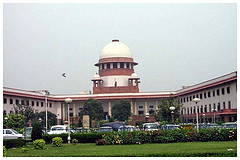If you obtain permission from the local authority, you may use residential property as commercial real estate. Find out the process of going about this and other details.
Saleha, an employee of a dentist, intends to convert her Vasai apartment into a clinic. Like Saleha, several other people are interested in actively leasing their residential property to businesses. It’s the norm in almost all cities due to the exorbitant rental prices. It reduces the cost of leasing or buying commercial real estate in addition to flight time and related expenses.
Even though housing societies frequently oppose it, some areas are suitable for full commercial purposes in residential apartments. However, this area varies from state to state or even within a city.
Residential and commercial properties have different characteristics.
Let’s examine the distinction between residential and commercial real estate:
- Residential Property or Zone: A residential zone is a location with residential properties like apartments, plots, standalone homes, and floor apartments. Hotels or motels may exist in such areas, but no retail stores.
- Commercial Property or Zone: A commercial zone is a region that includes shopping centers, businesses, office buildings, lodging facilities, nightclubs, and restaurants, among other things. The Commercial Zone Act, which specifies which commercial activities are allowed in which zones, is in charge of this zone. Near places of worship like churches, mosques, and temples, for instance, certain commercial activities are forbidden.
Is it possible to use a residential property for business purposes?
You can use a residential property for business with the necessary authorization. Every state has a different law regarding this; some states may only permit 30% of residential property to be used as commercial property, while others may allow 50%. Let us see what the law says.
Let’s establish who is eligible to use residential property for commercial purposes. “Services by resident advocates, CAs, Lawyers, and Doctors are some of the approved commercial activities in any residential area,” a legal expert from MB states while dwelling on the same. Tutorials, dance, and yoga classes are also permitted to use the space.
Is there a specific clause for this, then? “There is no specific provision for conversion of the use of an apartment from residential to commercial,” says Asha Basy, a partner at S Jalan & Company. You may use the apartment for business purposes, but such use shall be professional and shall not produce or manufacture any goods. Additionally, it should not bother other members of the community.
However, the housing society must first grant the necessary approvals. Depending on the type of business, Basu says it might also be essential to obtain permission from the local municipal authorities to turn the flat into a commercial establishment. The landlord’s no-objection statement is necessary for tenants in addition to the usual approvals.
What does the law say about converting residential property to commercial property?
Zoning law is a regulation that directs the transformation of residential property into commercial property. A piece of legislation that designates specific land use zones, either forbidding or allowing it. The law aims to safeguard against the detrimental effects of business operations. They try to keep the two distinct (commercial and residential). Residential, commercial, industrial, commercial, industrial, rural, combination zoning, agricultural zones, historic zones, and aesthetic zoning are just a few of the different zoning types.
How does a residential property become a commercial property?
A residential property’s transformation into a commercial property can take a long time. It is necessary to take all steps before starting commercial activities on residential property, regardless of how long it takes. It may lead to a penalty if you do not. This blog will walk you through turning a residential property into a commercial one.
- As a first step, go to the municipal authority in your city. You should visit the Delhi Municipal Corporation if you reside in Delhi.
- Step two is to submit a written application to the municipal officer to convert. It would be beneficial if you explained why you want to convert.
- Step three is to include the necessary paperwork for registering your business. Include additional pertinent information, such as the size of the company, its address, and the type of property.
- Step 4: The authorities will look into the company; if they discover no damage to the neighborhood or environment, they will only grant the company a license.






